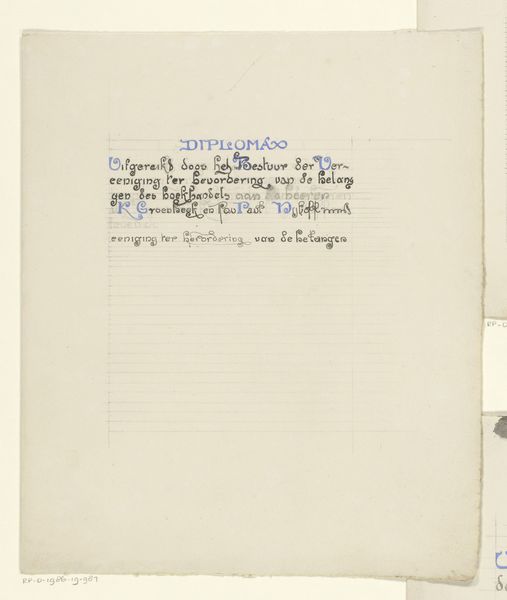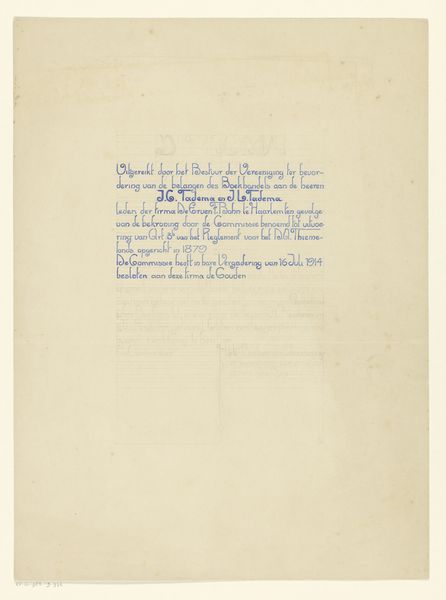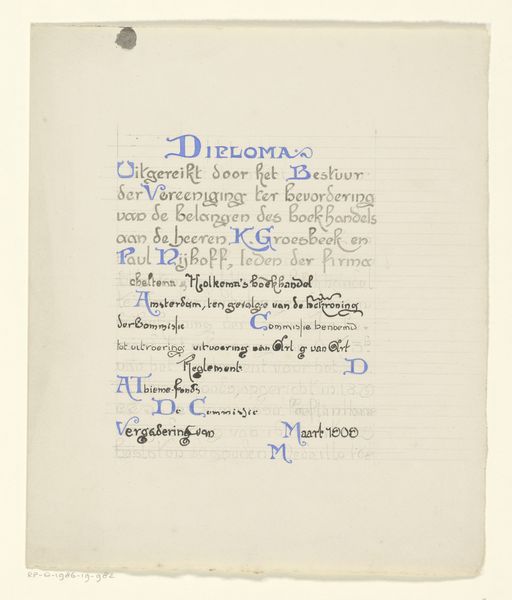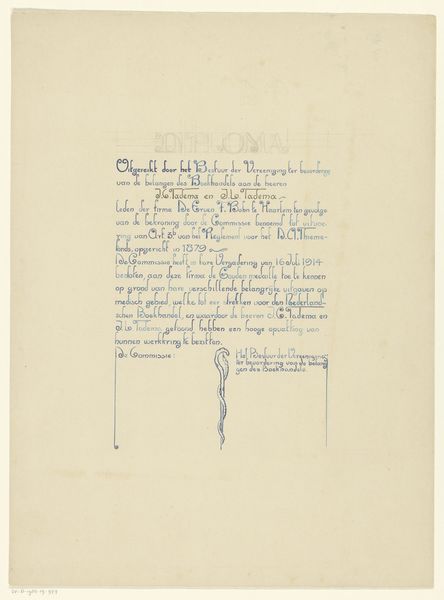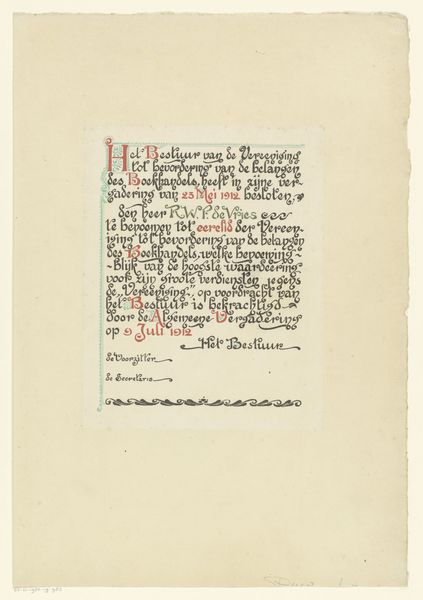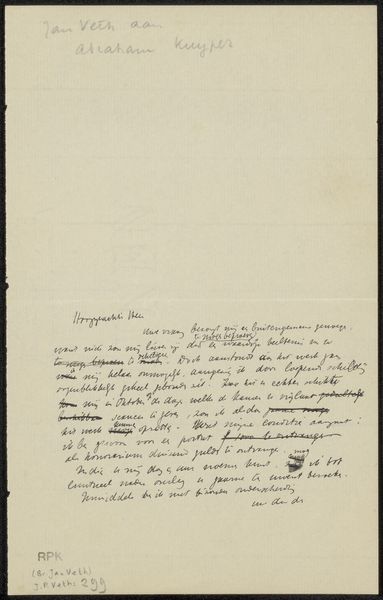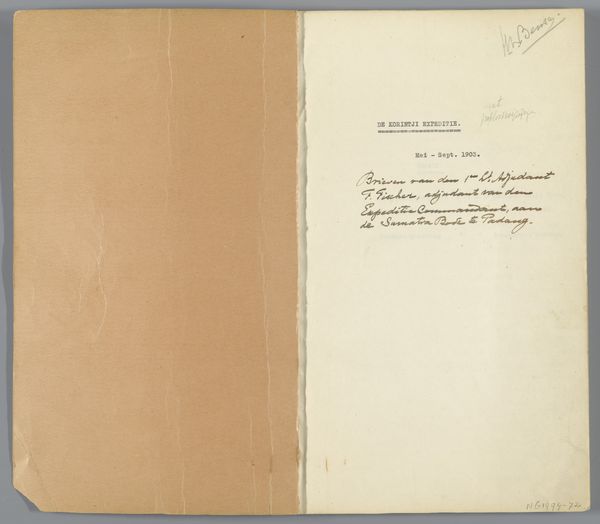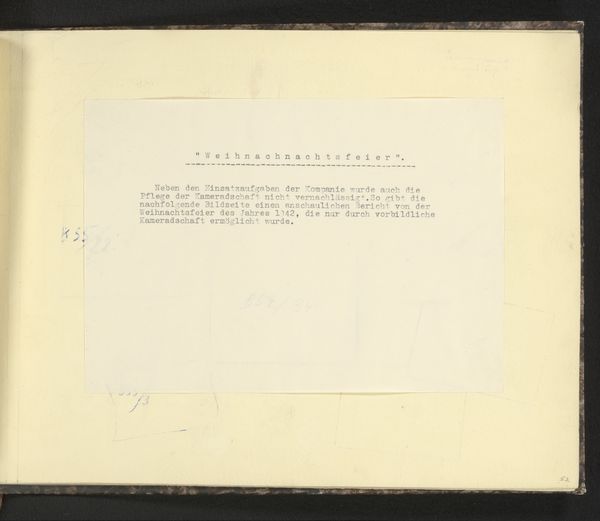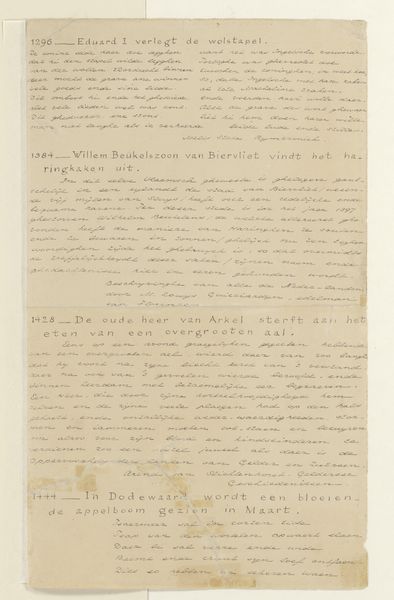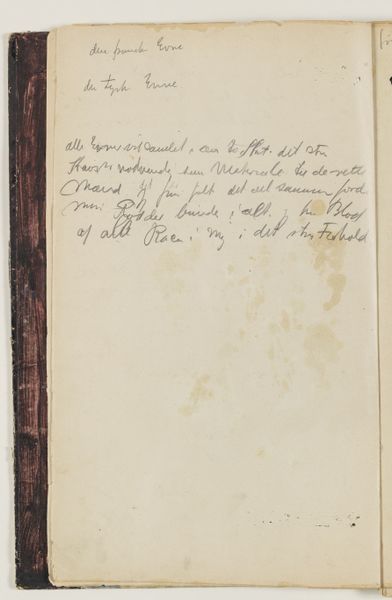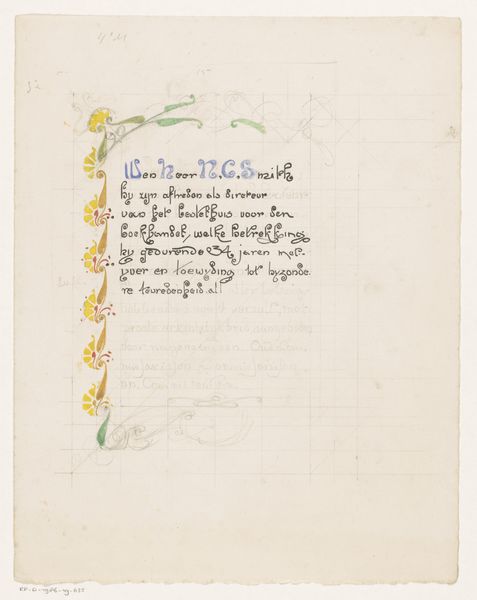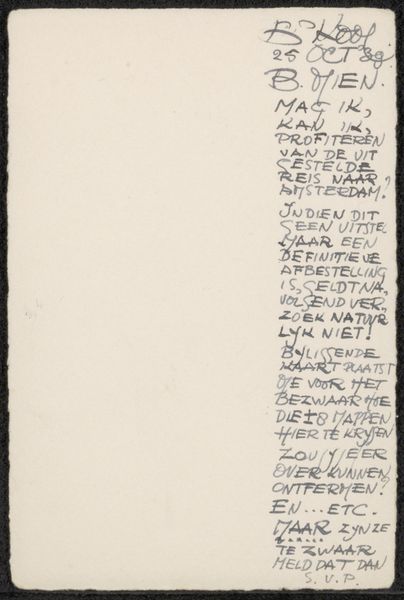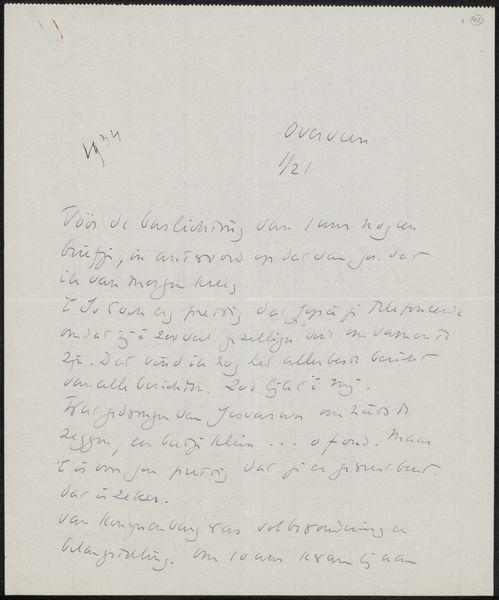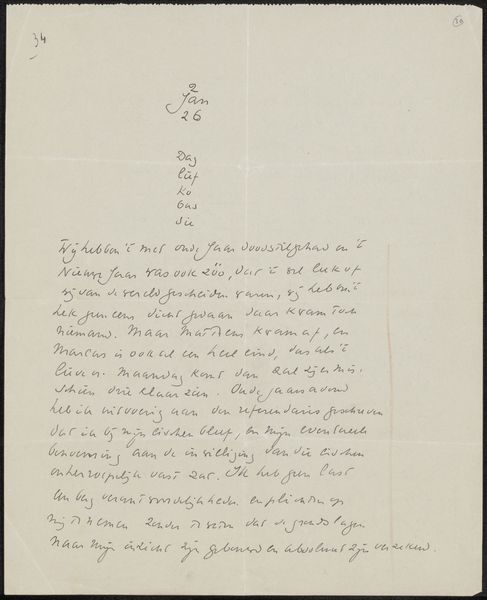
Ontwerp voor een diploma van de Vereniging ter Bevordering van de Belangen des Boekhandels 1909
0:00
0:00
drawing, graphic-art, print, paper, typography, ink
#
drawing
#
graphic-art
#
art-nouveau
# print
#
paper
#
typography
#
ink
#
geometric
Dimensions: height 252 mm, width 210 mm
Copyright: Rijks Museum: Open Domain
Editor: This is "Ontwerp voor een diploma van de Vereniging ter Bevordering van de Belangen des Boekhandels," or "Design for a Diploma of the Association for the Promotion of the Interests of Booksellers," created in 1909 by Reinier Willem Petrus de Vries. It's a drawing, a print really, using ink on paper and some typography. I’m struck by how sparse it is, especially the blank lines for, I guess, the recipient's name. What does this diploma design tell you? Curator: It’s a fascinating piece of graphic art. The Art Nouveau style clearly points to a specific moment in design history. More broadly, consider how such designs reflected a cultural need to professionalize various trades. Awarding a diploma wasn’t just a formality; it visually asserted standards and qualifications. How do you think this imagery reinforces the "interests of booksellers," as the title suggests? Editor: Well, I suppose the ornate script suggests a kind of learned respectability, linking bookselling with established traditions of scholarship and craftsmanship. Curator: Precisely! And what about the role of institutions like the "A.T. Thieme-fonds," mentioned at the bottom? To whom would they give a diploma, and why? Consider the commercial and social forces at play here. Editor: It seems it wouldn't be just anyone off the street! You’d need to prove some sort of competency or meet certain requirements set by the association, lending credibility to the bookseller. It connects commercial activity to validation and vetted quality. Curator: Exactly. Design isn't just aesthetic; it's deeply embedded in social and institutional power dynamics. The act of producing and distributing these certificates gave this organization power and the capacity to legitimize its members. Editor: It’s interesting to consider this diploma not just as a beautiful object but as a tool for establishing authority. Thanks! I’ll never look at a certificate the same way. Curator: Indeed! The study of graphic art can reveal how cultural values are literally "inscribed" into everyday objects.
Comments
No comments
Be the first to comment and join the conversation on the ultimate creative platform.
